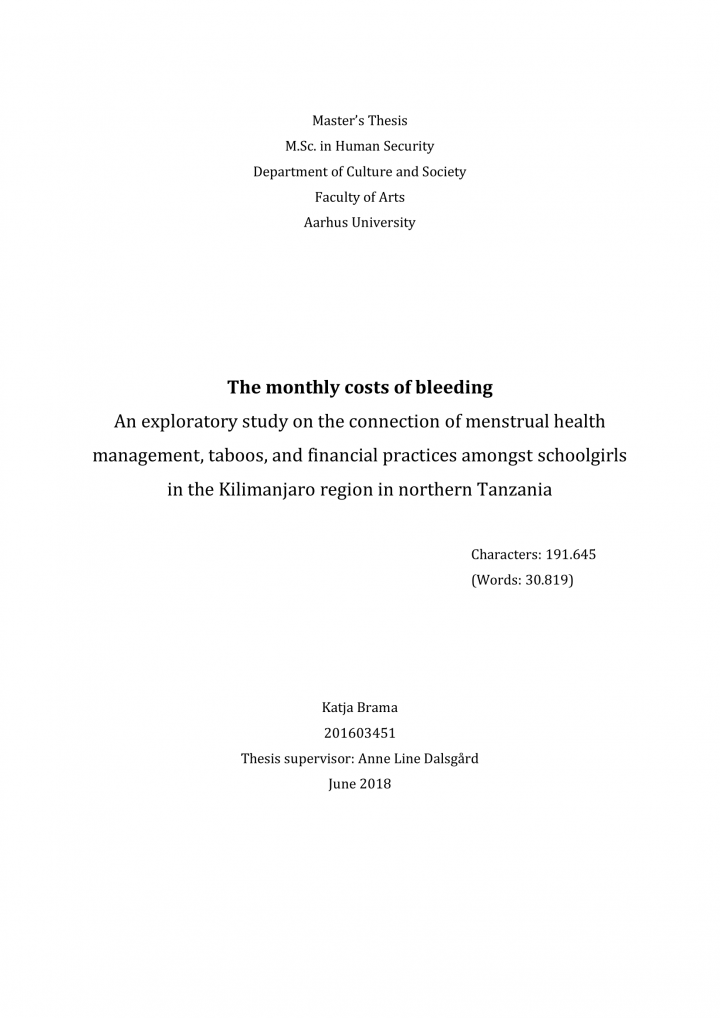The monthly cost of bleeding - An exploratory study on the connection of menstrual health management, taboos, and financial practices amongst schoolgirls in the Kilimanjaro region in Northern Tanzania
Brama, K. (2018)

Published in: 2018
Pages: 98
Publisher:
Aarhus University, Denmark / Fieldwork with Femme International, Moshi, Tanzania
Author:
Brama, K.
Uploaded by:
SuSanA Admin
Partner profile:
common upload
2028 Views
40 Downloads
Location of library entry
Both in the area of sexual and reproductive health and in development cooperation projects, the issue of menstruation has long been neglected. Recently, the combination of menstrual health and improvements in education has gained popularity. In particular, NGOs and corporate social responsibility departments in companies producing and selling menstrual products are showing increased commitment. Most projects focus on closing the gender gap in education. The assumption that improved menstrual health contributes to girls attending school for longer and has a positive effect on society is widespread and accepted. With my field research and this work I aim to explore the links between menstrual practices and financial insecurity in order to better understand the challenges that young girls in East Africa face in dealing with menstruation. In addition to financial challenges, I include cultural aspects of menstrual taboos and the gender hierarchy in Tanzanian society. Placed in this context, I show the interconnectedness of sexual and reproductive health, menstrual health, underlying social structures and power relations. I argue that the prevalence of patriarchal structures in Tanzanian society, the systematic financial and economic disadvantage of women and menstrual taboos represent a form of structural violence against women. These factors lead to menstrual practices that expose women and girls to an increased risk of assault, direct violence and damage to health. To illustrate this, I have collected and analysed qualitative data on strategies that schoolgirls use to get menstrual products or money to buy such products. The most common strategies involve support from family members, teachers or friends, work or sexual transactions. In my work, the focus is on students between the ages of 12 and 19. I illustrate how their social position and assigned identity within the patriarchal structures of Tanzanian society influences their potential and capacity to act. This can be seen in the consequences for the way they deal with their menstruation. I will further demonstrate that human security, especially the health and personal security dimension, is an adequate framework for discussing menstruation.
Bibliographic information
Brama, K. (2018). The monthly cost of bleeding - An exploratory study on the connection of menstrual health management, taboos, and financial practices amongst schoolgirls in the Kilimanjaro region in Northern Tanzania. Aarhus University, Denmark / Fieldwork with Femme International, Moshi, Tanzania
Filter tags
Case studies in other formats English Gender equality Menstrual Health and Hygiene (MHH) Schools Sexual and gender-based violence Sub-Saharan Africa Women's rights & representation and empowerment














